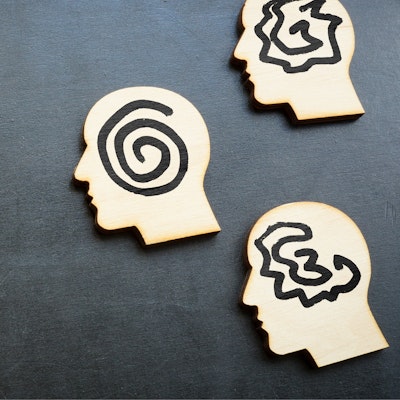
The brain is a pattern recognition machine. It lives to find patterns. It lives to be creative. It lives to push itself. Without that, it shrinks.
Show Notes
People and families suffering from Alzheimer’s and dementia often feel desperate for a cure and will try anything. Unfortunately, no cure exists and not a single treatment has been shown to reverse the effects of these brain diseases once they’ve started. Millions of Americans are afflicted by Alzheimer’s and dementia, and dishearteningly, the numbers are growing. But studies show that prevention via simple lifestyle habits is extremely effective, and some simple changes in diet, exercise and sleep practices can reduce the chances of developing brain disease by up to 40 or 50 percent. Drs. Ayesha and Dean Sherzai are a husband-and-wife team of neurologists who co-direct the Alzheimer’s Prevention Program at Loma Linda University in Southern California. In this talk from the 2023 Aspen Ideas Festival, the Sherzais share some of the most hopeful and accessible tips on adopting a healthy lifestyle that can optimize long-term brain health and keep cognitive decline at bay.
Explore
Related episodes


Death is understandably difficult – and for some people, nearly impossible – to conceive of and talk about. Especially our own. It may seem like there’s nothing we can do to prepare for our last moments on earth, but several innovative panelists at the 2023 Aspen Ideas Festival would disagree. Alua Arthur is a “death doula,” who helps people find peace with themselves when...


After millennia of human existence, we’re still figuring out and talking constantly about one of our most fundamental behaviors – sex. Despite the sexual revolution of the 60s and 70s and the growth of sex positivity in recent decades, a lot of people still report having a lot of bad sex. The reasons for that are varied and multiple, but culture has a role to play, and we...


Menopause is a normal phase of life, but can nonetheless be a challenging and confusing time for women reaching middle age. As a culture, we talk about the details of menopausal transition very little, and women often have to walk a gauntlet of sellers offering dubious cures and treatments before getting to medically sound and reliable solutions. Even experts frequently st...


Living a happy life isn’t as simple as having a smile on your face all the time. We often think that our negative emotions should be minimized and repressed, but acknowledging and managing them is actually key to achieving a healthy baseline. Author and Harvard professor Arthur Brooks studies the latest happiness research across behavioral science, philosophy, psychology,...


The human capacity for empathy allows us to communicate, collaborate and understand each other. But we all know empathy isn’t always easy, and we can feel worn down by the effort. MIT professor and researcher Sherry Turkle studies empathy, and particularly how technology can undermine our natural human tendencies to connect. After several books and many decades of work com...








